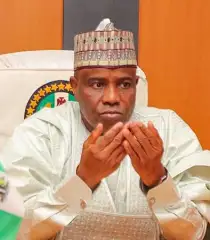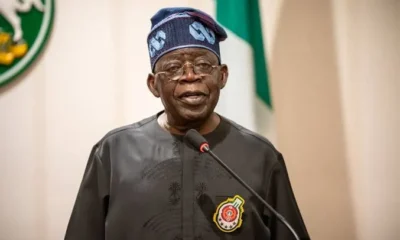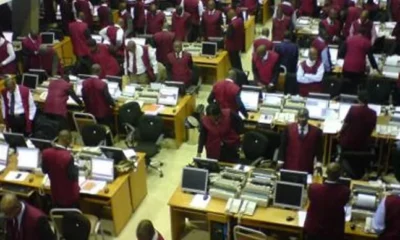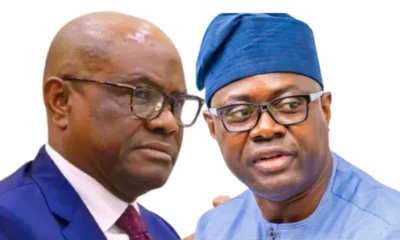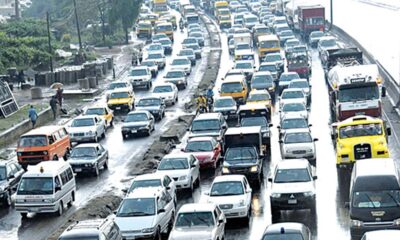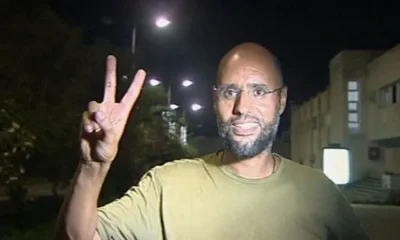News
Peter Obi Faults $1bn Lagos Port Modernisation, Calls for Decentralised Maritime Development

Former Anambra State governor and 2023 Labour Party presidential candidate, Peter Obi, has cautioned against Nigeria’s continued concentration of port development in Lagos, describing it as economically unbalanced and counterproductive to national growth.
In a statement posted on his X (formerly Twitter) handle on Tuesday titled “The Imperative of Diversifying Port Development in Nigeria,” Obi said while the Federal Government’s recent approval of $1 billion (₦1.5 trillion) for the modernisation of the Apapa and TinCan Island ports in Lagos is commendable, the project underscores the nation’s over-dependence on Lagos ports at the expense of other regions.
“Port Development in Nigeria is Overly Concentrated in Lagos”
Obi argued that Nigeria’s infrastructure investment is disproportionately focused on Lagos, leaving out strategic ports such as Warri, Port Harcourt, Calabar, and Onne — which, if revitalised, could boost trade, create jobs, and promote regional development.
“Nigeria’s infrastructure investment remains excessively concentrated in Lagos, often at the expense of other strategic ports,” Obi said. “If fully developed, these ports could enhance productivity, drive trade, create jobs, and open new economic corridors that would lift millions out of poverty across the federation.”
He cited examples of countries that have decentralised port development — including Vietnam, Indonesia, South Africa, Egypt, Morocco, Algeria, and Ghana — noting that such strategies have boosted national connectivity and economic inclusion.
“No country seeking to maximise its blue economy concentrates all maritime activities in a single city,” he said. “Decentralisation reduces congestion, improves logistics, enhances national security, and promotes balanced economic growth.”
Lagos Overburdened by Congestion and High Costs
According to Obi, over 70 per cent of Nigeria’s port activities are concentrated in Lagos, creating chronic congestion, environmental degradation, and delays that raise the cost of doing business nationwide.
“Developing other ports is not merely an infrastructural necessity but a national imperative,” he said. “Revitalising Warri, Port Harcourt, Calabar, and Onne would decongest Lagos, reduce shipping costs, attract investment, create employment, and stimulate regional economies.”
Calls for Reform, Transparency, and a National Maritime Vision
The former governor urged the Federal Government to ensure accountability, transparency, and equity in executing the Lagos port modernisation project. He also called for reforms to address corruption, streamline bureaucracy, and introduce technology-driven processes to make Nigerian ports globally competitive.
“Beyond physical infrastructure, reform must also address corruption, reduce bureaucracy, and embrace technology to create a seamless, paperless port system that enhances turnaround time and competitiveness,” he stated.
Obi added that if properly managed, the Lagos port project could serve as a model for maritime transformation across the country.
“If prudently managed, the Lagos modernisation project could become a reference point from which similar development radiates across the nation,” he said.
“A New Nigeria is Possible”
Concluding his statement, Obi reiterated that national development must be guided by fairness, integrity, and a commitment to equity.
“Now more than ever, Nigeria must rebuild with fairness, guided by equity, integrity, and a clear vision to transform our nation from one of consumption to one of production and shared prosperity,” he said, adding his familiar sign-off: “A New Nigeria is POssible.”
-

 News16 hours ago
News16 hours agoElectricity subsidy: FG to deduct N3.6tn from Federation Account
-

 News16 hours ago
News16 hours agoN117bn misappropriation uncovered under Tambuwal – Sokoto panel
-

 News16 hours ago
News16 hours agoNo going back on reforms – Tinubu tells W’Bank team
-

 Business16 hours ago
Business16 hours agoNigeria PMI slips below 50 as orders stall
-

 Politics12 hours ago
Politics12 hours agoYou’re a repentant vagabond – Wike replies Makinde
-

 Opinion16 hours ago
Opinion16 hours agoTraffic fines: High cost of driving in Sanwo-Olu’s Lagos
-

 African News15 hours ago
African News15 hours agoSaif al-Islam Gaddafi, son of former leader, killed in Libya
-

 News16 hours ago
News16 hours agoBandits kill 30 in fresh Katsina, Kwara attacks





